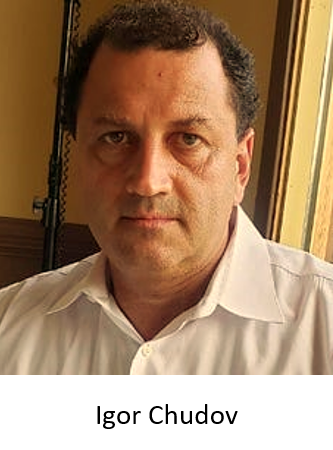Going Global with Censorship:
WEF and UN to Police Online 'Misinformation'
The World Economic Forum (WEF) continues its international mischief by setting its sights on electronic censorship, using what it claims is artificial intelligence (AI) to bolster the more fallible human intelligence. As Robert F. Kennedy Jr.'s Children's Health Defense noted in its online news vehicle the Defender, one critic of the WEF's plan, blogger Igor Chudov, suggested it "would globalize the search for wrongthink."
As pro-family and other right-thinking observers might imagine, "wrongthink" refers to First Amendment rights, beginning with free speech. Most likely due to the fact that more and more people across the globe are becoming wise to the rhetoric of the progressive left and what it really means for the traditional Western standards of freedom and justice, the WEF distances itself from the article before the first sentence.
Titled "The solution to online abuse? AI needs human intelligence", by Inbal Goldberger, it begins with the following warning to readers:
- Please be aware that this article has been shared on websites that routinely misrepresent content and spread misinformation. We ask you to note the following:
-
- The content of this article is the opinion of the author, not the World Economic Forum.
- Please read the piece for yourself. The Forum is committed to publishing a wide array of voices and misrepresenting content only diminishes open conversations.
 The article quickly gets down to business, noting: "As the internet has evolved, so has the dark world of online harms. Trust and safety teams (the teams typically found within online platforms responsible for removing abusive content and enforcing platform policies) are challenged by an ever-growing list of abuses, such as child abuse, extremism, disinformation, hate speech and fraud; and increasingly advanced actors misusing platforms in unique ways."
The article quickly gets down to business, noting: "As the internet has evolved, so has the dark world of online harms. Trust and safety teams (the teams typically found within online platforms responsible for removing abusive content and enforcing platform policies) are challenged by an ever-growing list of abuses, such as child abuse, extremism, disinformation, hate speech and fraud; and increasingly advanced actors misusing platforms in unique ways."
It's of note to point out here that author Goldberger, as reported by the Defender, "is vice president of ActiveFence Trust & Safety, a technology company based in New York City and Tel Aviv that claims it 'automatically collects data from millions of sources and applies contextual AI to power trust and safety operations of any size.'"
Of course, there's nothing to see here — nothing but the desire of Goldberger and her company to safeguard "the children." She is proposing "a system based on 'human-curated, multi-language, off-platform intelligence' — in other words, input provided by 'expert' human sources that would then create 'learning sets' that would train the AI to recognize purportedly harmful or dangerous content."
Automating censorship
Igor Chudov, who authors the online Igor's Newsletter on Substack, analyzed Goldberger's article, writing on August 11 that "the WEF is becoming a little concerned. Unapproved opinions are becoming more popular, and online censors cannot keep up with millions of people becoming more aware and more vocal. The censorship engines employed by Internet platforms turned out to be quite stupid and incapable. People are even daring to complain about the World Economic Forum, which is obviously completely unacceptable."
Chudov noted that Goldberger's solution to reach beyond the platform-by-platform basis for digital regulation "would allow [the censors] to move beyond the major internet platforms in order to collect intelligence about people and ideas everywhere." He continued that "such an approach would allow them to know better what person or idea to censor — on all major platforms at once."
As the Defender reported: "The 'intelligence' collected by the system from its 'millions of sources' would, according to Chudov, 'detect thoughts that they do not like,' resulting in 'content removal decisions handed down to the likes of Twitter, Facebook, and so on ... a major change from the status quo of each platform deciding what to do based on messages posted to that specific platform only.'"
Chudov concluded that, in this way, "the search for wrongthink becomes globalized."
Didi Rankovic of ReclaimTheNet.org writes that it's all an effort to automate the censorship of what the left deems hate speech and misinformation. She wrote: "The WEF continues to beat the drum of the need to somehow merge AI and humans as a supposed panacea [for] pretty much any ill plaguing society and economy."
According to Rankovic, the totally out-of-touch WEF would like to pretend that the burning issue for the world's citizens is online "misinformation," rather than skyrocketing inflation, fuel shortages, including the uncertainty of many to be able to heat their homes this winter, the increasing threat of food scarcity, and the myriad other problems facing humanity, both in the U.S. and around the world.
Rankovic points out that references to AI by the WEF and throughout Goldberger's article is actually erroneous. "The WEF says it is proposing 'a new framework: rather than relying on AI to detect at scale and humans to review edge cases, an intelligence-based approach is crucial.'" She summarizes Goldberger's piece as a "techno-bubble word salad" that can ultimately be discerned to mean "simply pressuring social networks to start moving towards 'preemptive censorship.'"
Gates Foundation-backed UN involvement
The Defender contends that "the WEF isn't the only entity calling for more stringent policing of online content and 'misinformation.'" The UN's Educational, Scientific, and Cultural agency, UNESCO, has a "#ThinkBeforeSharing" initiative to "stop the spread of conspiracy theories."
 UNESCO opines that "The COVID-19 pandemic has sparked a worrying rise in disinformation and conspiracy theories. Conspiracy theories can be dangerous: they often target and discriminate against vulnerable groups, ignore scientific evidence and polarize society with serious consequences. This needs to stop." They are obviously referring to the skepticism of many citizens who question the effectiveness of the lockdowns, the efficacy of masks, and the safety and effectiveness of the COVID vaccines.
UNESCO opines that "The COVID-19 pandemic has sparked a worrying rise in disinformation and conspiracy theories. Conspiracy theories can be dangerous: they often target and discriminate against vulnerable groups, ignore scientific evidence and polarize society with serious consequences. This needs to stop." They are obviously referring to the skepticism of many citizens who question the effectiveness of the lockdowns, the efficacy of masks, and the safety and effectiveness of the COVID vaccines.
UNESCO's campaign is a partnership with Twitter, the European Commission and the World Jewish Congress. It is using Twitter to, among other things, dispel the notion that powerful forces are manipulating "secretly behind the scenes with negative intent."
As the Defender described:
- The #ThinkBeforeSharing campaign provides a host of infographics and accompanying materials intended to explain what "conspiracy theories" are, how to identify them, how to report on them and how to react to them more broadly.
- According to these materials, conspiracy theories have six things in common, including:
-
- An "alleged secret plot."
- A "group of conspirators."
- "'Evidence' that seems to support the conspiracy theory."
- Suggestions that "falsely" claim "nothing happens by accident and that there are no coincidences," and that "nothing is as it appears and everything is connected."
- They divide the world into "good or bad."
- They scapegoat people and groups.
#ThinkBeforeSharing follows on the heels of previous similar UN initiatives to counter "misinformation" and "conspiracy theories." These include a "plan of action to tackle disinformation, sponsored by the U.S., U.K., Ukraine, Japan, Latvia, Lithuania and Poland," which "emphasizes the primary role that governments have, in countering false narratives," and "the UN's #PledgeToPause initiative, which was announced in November 2020, and was described by the UN as "the first global behaviour-change campaign on misinformation."
These campaigns are part of a broader UN initiative, called "Verified," that aims to recruit participants to disseminate "verified content optimized for social sharing," stemming directly from the UN communications department. This means the UN will determine the propaganda to be disseminated uniformly and consistently across social media platforms.
According to the Defender, both "'Verified' and the #PledgeToPause campaigns still appear to be active as of the time of this writing." It states: "The Verified initiative is operated in conjunction with Purpose, an activist group that has collaborated with the Bill & Melinda Gates Foundation, the Rockefeller Foundation, Bloomberg Philanthropies, the World Health Organization, the Chan Zuckerberg Initiative, Google, and Starbucks." It adds that the UN "has been in a strategic partnership with the WEF" since 2019 based on six "areas of focus," one of which is "digital cooperation."
As with many digital initiatives underway at the behest of the WEF and other global forces, #ThinkBeforeSharing is advancing without the knowledge or approval of the general population.
Want to be notified of new Education Reporter content?
Your information will NOT be sold or shared and will ONLY be used to notify you of new content.
Click Here
Return to Home Page
